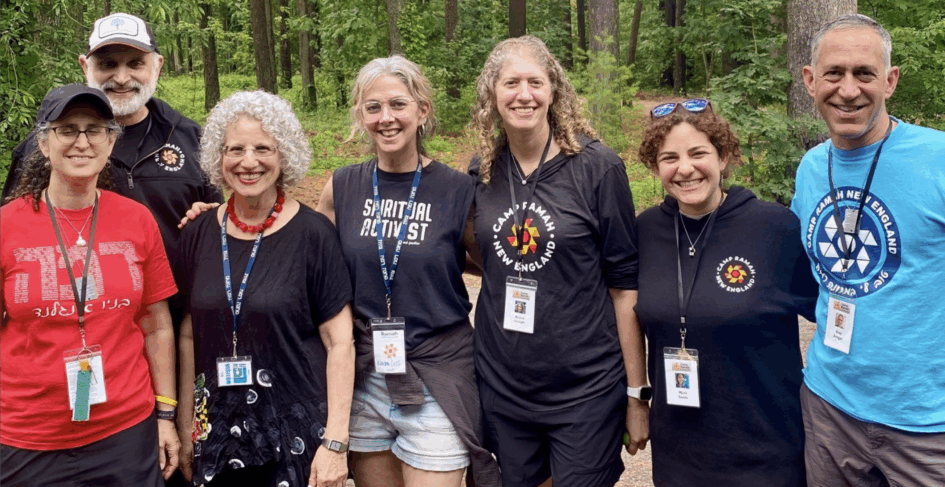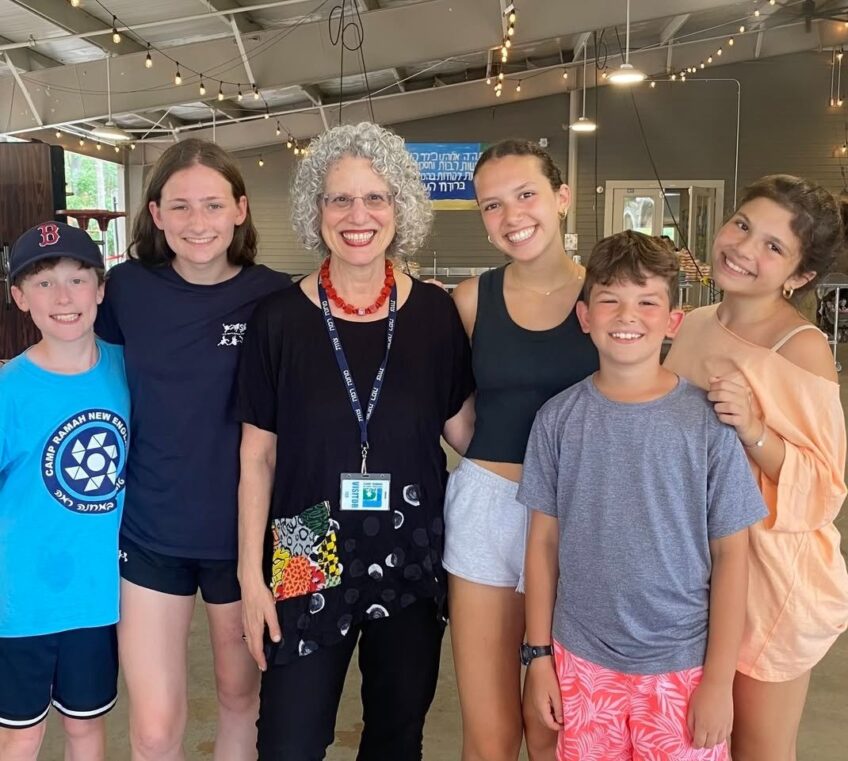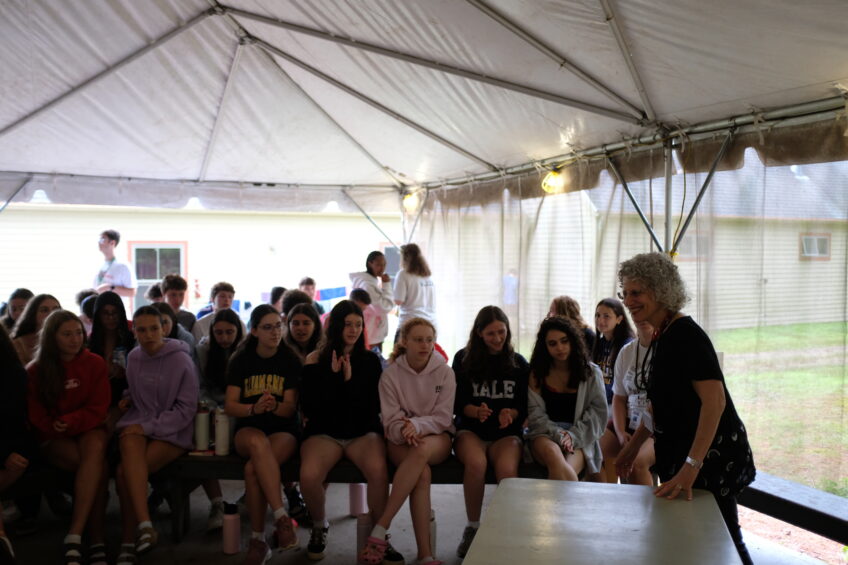Ramah New England Reflections from Chancellor Shuly Rubin Schwartz

Earlier this kayitz (summer), we were honored to host JTS Chancellor Shuly Rubin Schwartz for a visit. Chancellor Schwartz shares these reflections:
I had not been back to Camp Ramah New England for many years, and as I drove into camp, I was overcome by waves of nostalgia. Decades ago, I spent 3 formative summers there, and they changed the course of my life.
The first summer, I participated in a rigorous counselor-training programming. We studied educational theory, developmental psychology, and programming. We also studied Bible, Hebrew literature, prayer, and Hebrew language, all to make us both better counselors and to expand our own minds, grow our skills, and connect us more deeply to our Jewish heritage.
Though I was only 17 years of age, our teachers, mentors, and advisors treated us like responsible adults, like budding educators charged with shaping the hearts and minds of our campers. And we stepped up to meet that expectation.
The summer was exhausting and exhilarating. I met so many near-peers whom I admired, forged close friendships with those in my cohort—including my late husband – and found mentors who helped me hone my skills and channel my abilities in meaningful ways.
I spent two additional summers in Palmer, MA, as a specialist teaching Israeli folk dancing to campers and staff. I had learned that the arts bring people together, deepen their ties to the Jewish people and to Israel, and develop their skills.
As lovely as it was to sit with my happy memories, nothing gave me more pleasure than to see the success of Camp Ramah New England today. Touring the camp with today’s leadership, I was struck by the wise ways in which the camp has evolved over the decades – new construction that serves the needs of today’s campers and staff, revised program schedules to better align with the varying needs of different age groups, meaningful age-appropriate tefillah that speaks to the challenges of the moment while retaining the structure and essence of traditional prayer, and a robust camper care program that didn’t exist at all some 50 years ago.
And amidst all the change, I was equally moved by how much has remained the same: The inspiring directors and senior staff – all expert educators who inspire everyone in camp. The earnest dedication of the talented staff who are every bit as dedicated to ensuring that their charges will have the same life-changing, joyous, challenging, fun experiences that they had — and that they will leave camp more Jewishly engaged, literate, and connected. Amazing campers who are thriving in the Ramah environment and appreciate the gifts that it provides.
After meaningful, camper led-morning prayer – in which my great niece read Torah flawlessly, I had the opportunity to engage with the oldest campers about their experiences as high school students since October 7 – which for them meant their entire high school careers. Their experiences varied widely depending on the location and type of school they attended and on the willingness of teachers and administrators to engage with the impact of the war and the eruption of antisemitism that followed it. The campers were grateful to be able to speak freely about the challenges they faced and to articulate their pain and concerns. I was impressed by how thoughtful, reflective, and articulate they were and overwhelmed by their courage and acuity. It was sobering to experience their sense of sadness at the world they are coming of age in.
Their eagerness to share reminded me yet again how important a role Ramah plays – and will continue to play – in the lives of young Jews. With a full heart, I quoted the verse from that week’s parashah, Balak: “Ma Tovu Ohalekha, Yaakov”—how goodly are your tents, Oh Jacob.” How wonderful, indeed, it was to be together, in this community, at this moment. Their assent through clapping and finger snapping reverberated through the landscape.

